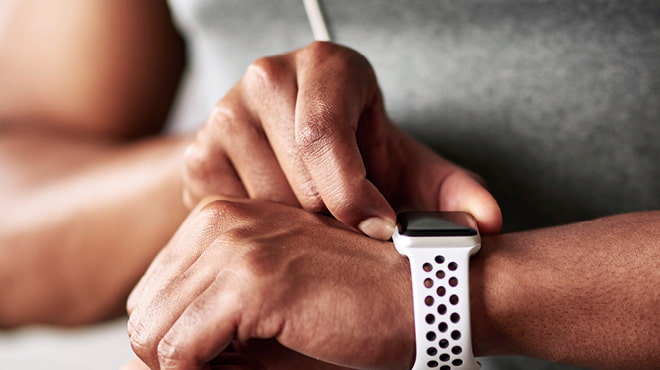Recent Posts
No bones about it: Dogs are good for your health

People with dogs know the benefits of pet ownership. The unconditional love, trust and loyalty shown by your canine companions, coupled with their unbridled enthusiasm on your return home each day, is hard to put into words.
There's another plus of having a dog by your side: It improves your overall physical and mental health. Here's how.
Dogs get you moving
One notable benefit is that dogs force you to get up and move. One research study found that dog owners are more likely to report regular physical activity than people who don't own dogs. Activities associated with dog ownership, like feeding, grooming, playing and letting them outside, all increase physical activity levels. Physical activity improves blood flow, induces muscle contraction and reduces joint stiffness.
Dogs also require regular exercise, and will greet it with smiles and wagging tails. In addition to a typical walk, you can work hiking and running into your outings with your dog depending on its breed. People who regularly perform aerobic exercise have improved blood pressure, reduced blood sugar levels, better controlled weight and a reduced risk of developing cardiovascular disease. Other studies have demonstrated that exercise can improve depression and anxiety.
Over time, exercise will help strengthen your muscles, bones and joints. You may notice that your usual route is feeling easier and decide to stay out longer or walk up that extra hill.
When selecting a new puppy or dog, carefully consider its energy levels and exercise requirements. It's best when your lifestyle and activity levels match that of your canine buddy.
Dogs help your weight
Exercise burns calories and helps you maintain a healthy weight. In one study, adults who regularly walked their dogs were less likely to be obese than their nondog-owning neighbors. The same research found that dog owners also are more likely to report a healthy diet and blood sugar at ideal levels, which improves overall heart health. Walking for 30 minutes a day will reduce the risk of coronary heart disease, osteoporosis, colon and breast cancer, and Type 2 diabetes.
That 30 minutes of light-to-moderate dog walking also can help you achieve deeper, more restful sleep.
Health care professionals recommend adults aim for 150 minutes of aerobic exercise per week.
Dogs promote social connection
Owning a dog has been linked to better mental health and a lower perception of social isolation, which can reduce the risk of heart attacks and cognitive issues. Being socially isolated is a strong risk factor for worse health outcomes and premature death. Dog owners interact more with other people, such as other dog owners and people they encounter on walks, and are less likely to experience depression.
For people who work from home, there are four significant ways pets can help with your mental health:
- Reducing work-related stress.
Two out of three employees say work stresses them out, and 40% say their job gets in the way of their health. Pets in the workplace, even at home, reduce stress and improve employee satisfaction. - Managing anxiety.
With the increase in work-from-home jobs, more people are struggling with mental health. Pets can provide the companionship and support once found in the office. - Increasing activity.
Dogs give you a reason to go outside, breathe in fresh air and get some physical activity. - Combating loneliness.
The bond with pets helps people feel less alone. Owners can touch, see, hear or talk to their companion animals, which brings happiness, connection and physical contact.
There's also research showing the benefits of animal-assisted therapy during rehabilitation for nervous system conditions, such as strokes, seizure disorders, brain trauma and infections. Dogs can be a valuable part of cardiac rehabilitation, occupational therapy and physical therapy programs. They can provide social support, and trained dogs can even participate in your rehabilitation or therapy sessions.
Big decision, win-win solution
Welcoming a dog into your home is a big decision, and you should carefully consider the responsibilities. However, you also should consider the many wonderful health and emotional benefits that come from of dog ownership.
The bottom line is that a dog can help you be more active and socially connected while improving your overall health. It's a win-win solution — and doggone fun.
Next steps:
- Find a cardiologist.
- Start a walking program with your canine partner.
- Consider training your dog for pet therapy to gain the dual benefits of connection and volunteering.
Tahir Tak, M.D., is a cardiologist in La Crosse, Onalaska and Prairie du Chien, Wisconsin. Heidi Grafft is an exercise physiologist in Cardiac Rehabilitation in La Crosse, Wisconsin.





